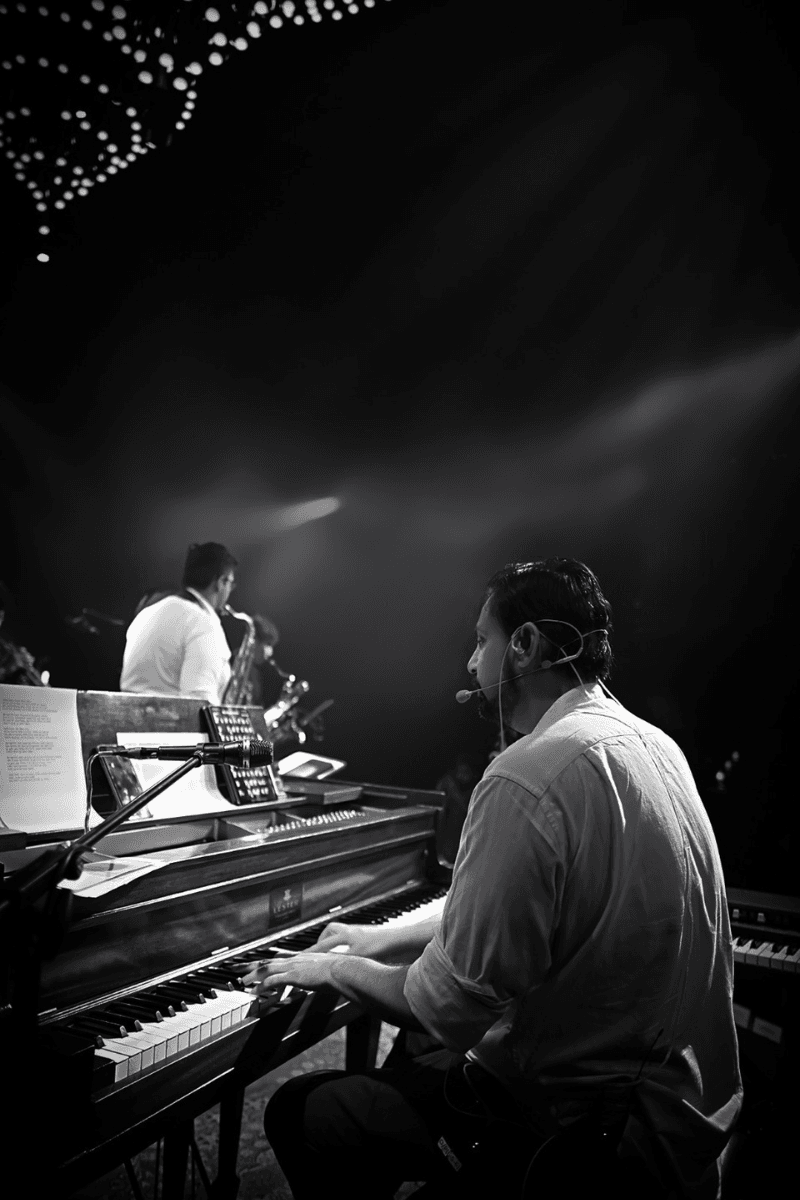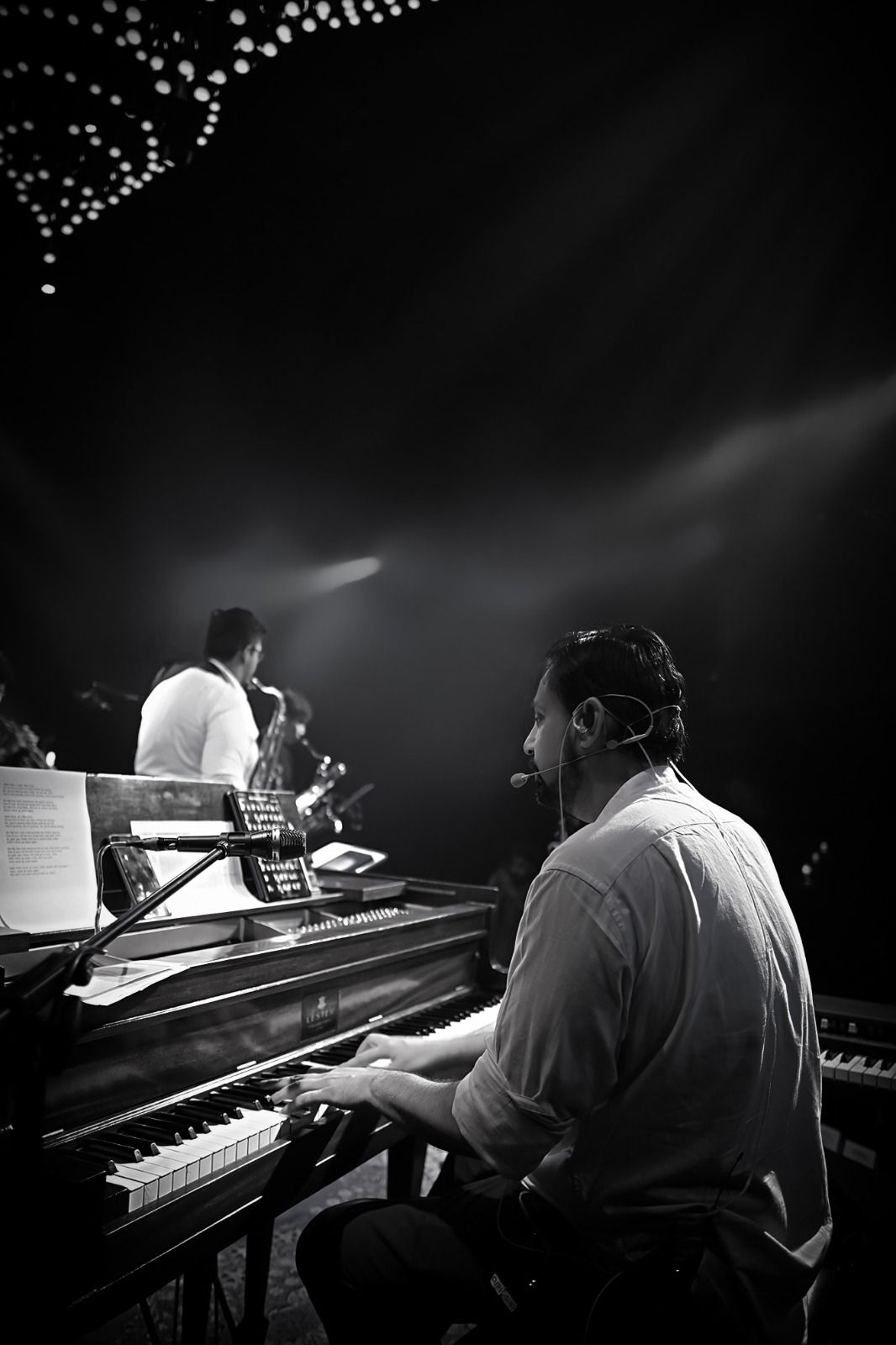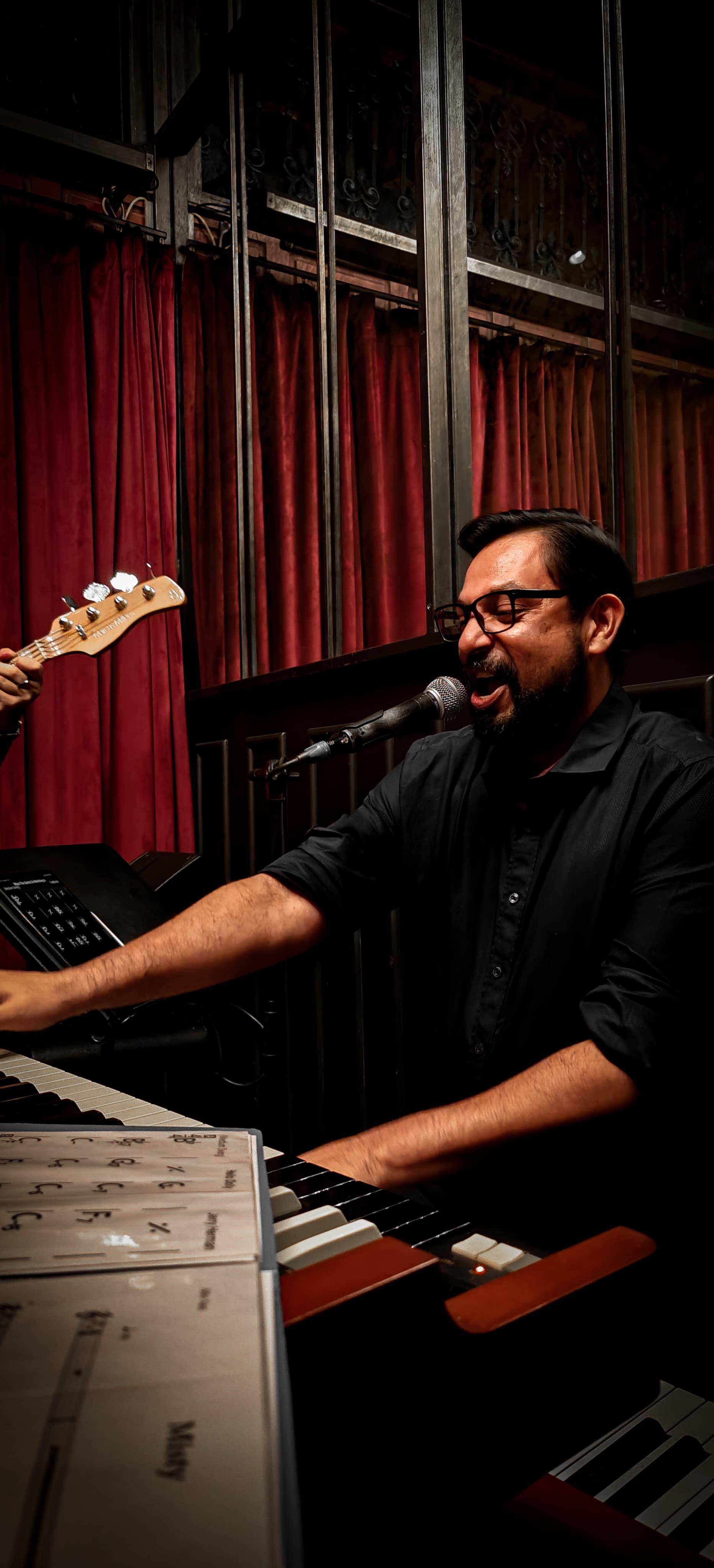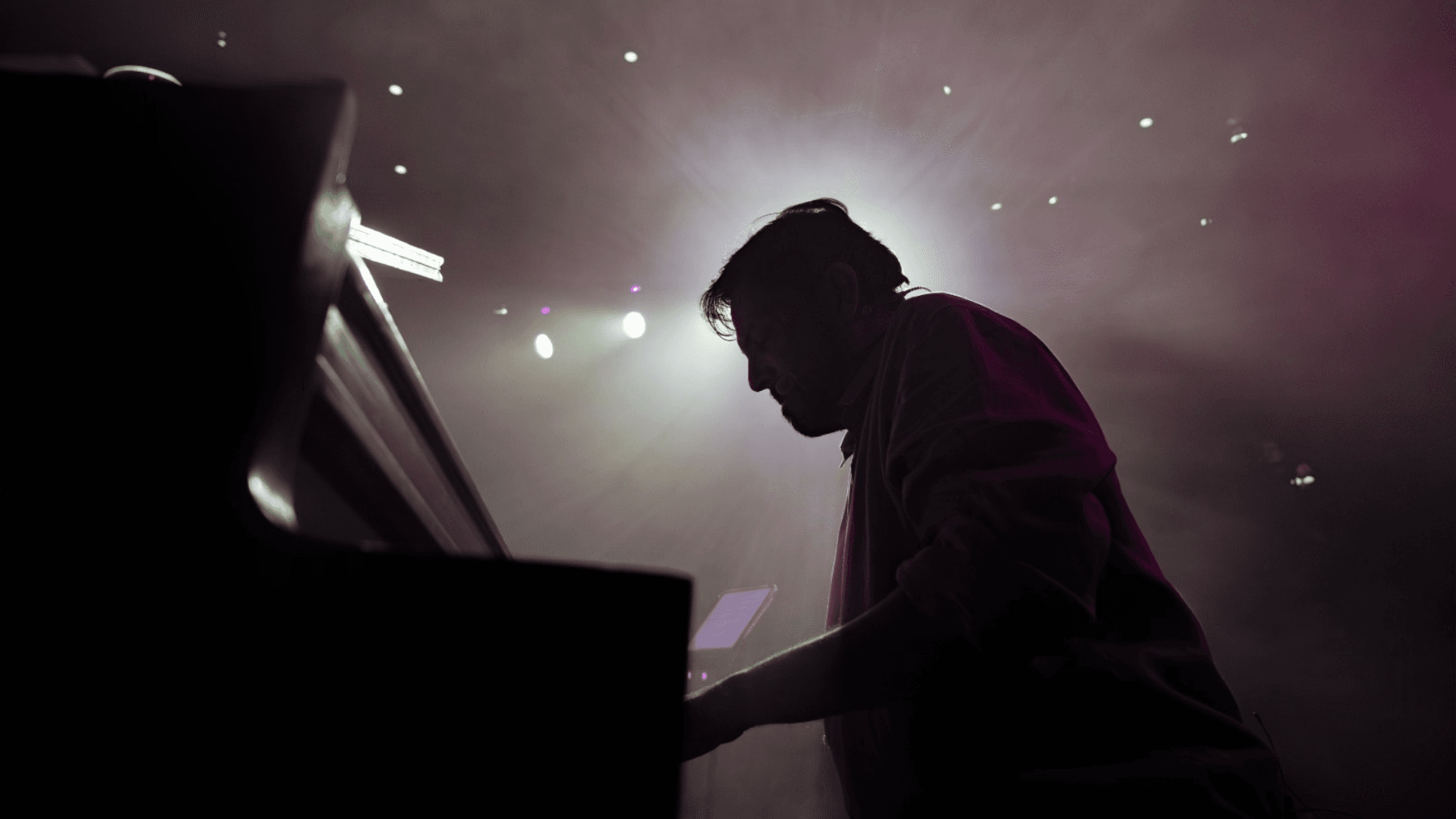
I first met Arjun Sagar Gupta in 2019, when I was still new to the job and he was already deep into the unlikely project of building a home for jazz in Delhi. Six years later, we reconnect the morning after The Piano Man’s 10th anniversary — a milestone that speaks to just how far his vision has travelled.
What began in Safdarjung Enclave as an intimate basement club quickly became a cornerstone of Delhi’s cultural life, a rare space where live jazz, swing, and blues weren’t background noise but the reason to be there. Over the decade, The Piano Man expanded into Saket and then Gurugram, each venue taking on its own identity while carrying the same DNA of music-first programming. Along the way, its stages have hosted giants like Chick Corea, Herbie Hancock, and Tigran Hamasyan, as well as hundreds of Indian and international artists who found in it something the city badly lacked: a consistent, respectful, and professional platform for live performance.
To mark the occasion, I caught up with Gupta to talk about the anniversary, the evolution of the scene, and what lies ahead — a trip down memory lane best paired with a cigarette, a Whiskey Sour, and a good ear. Excerpts:
You performed yesterday at the 10th anniversary. What was the night like for you?
It was wonderful. I was just moving through different shades of swing and jazz, and then at certain points I was playing with friends I hadn’t jammed with in a long while. Towards the end of the night it just became a free-flowing thing — the drummer took off in one direction, I followed, and we just had fun. That’s really what it was about. Not overthinking it, just enjoying the music together. And because it was the 10th year, it felt like a celebration in the truest sense.

Looking back, what do you think is the biggest difference in yourself compared to when you first set off on this project ten years ago?
That’s an interesting question — nobody has ever actually asked me that. I’d split it into three buckets: the personal, the professional, and the musician.
On a personal level, I’ve changed in how I deal with stress, time management, and my priorities. Back then I was still figuring it out; now The Piano Man has become my purpose, and with that comes clarity. You know what you’re trying to do, what impact you’d like to have, and that gives you direction even if the results take years to show.
Professionally, the change has been huge. I’m not a business school brat, so I had to learn everything on the job — how to run a team, how to build an environment where people can thrive. Early on, I was more arrogant, thought I knew it all. Over time you realise the world is vast, and there’s always more to learn. That’s humbling, and it shapes the way you manage people. A lot of my team has been with me from the start; from 20–30 people in the early days we’ve grown to over 200, and about a third of them have stayed for over ten years. In a small organisation that’s pretty rare, and it reflects how much we’ve grown together.
And then there’s the musician bucket. The way I interact with artists today is very different from ten years ago. The organisation has grown, so the impact we can have on musicians has grown too. Building a robust ecosystem for art has always been a priority, and I think the last decade has been about slowly making that ecosystem more professional and sustainable.
When you started out, India’s live music circuit was pretty fragmented. How have you seen it evolve?
When I started performing back in 2002, the scene was very unstructured. There was no consistency, no infrastructure, no communication, and often no payment either — or it came after three, six months, or never. Even big venues behaved that way.
So when we started The Piano Man, we focused on fixing those issues. Infrastructure, sound, timely payments, respect for the artist. We decided that whatever the amount agreed upon, it had to be paid on time. That was non-negotiable. Over the years we’ve tightened those systems, and now there’s a baseline expectation that artists should be treated professionally. If a venue is toxic, musicians have alternatives and will simply avoid it. That gradual shift has forced the industry to clean up its act, at least in part.
Looking back at ten years of programming, which performances stand out the most for you?
That’s always the hardest question, because there have been so many. But some are truly unforgettable. Hosting Chick Corea in 2018, for example, or Herbie Hancock, or Tigran Hamasyan. To have these giants of jazz — people whose music shaped the genre itself — perform at your space is surreal. It felt like a parallel universe, like: did this actually happen?
At the same time, there are evenings with lesser-known musicians that stay with me just as strongly. For example, the anniversary weekend itself had two phenomenal women playing a delicate set on piano. They’re not world-famous, but the quality and emotional weight of their music was incredible. That’s the beauty of it — it’s not just about the legends, it’s about creating a space where every artist can move people deeply.
Each Piano Man venue has its own energy. What was your thinking behind expanding to new spaces?
Safdarjung, the first, was all about creating a home for jazz and building a community around it. Eldeco in Saket widened the spectrum — we wanted to bring in more non-commercial music and expose audiences to different genres. Gurugram, which came eight years into the journey, was about lifestyle: how do we get people in that city to engage with live music as part of their lives?
So each space has its mandate, but the DNA is the same. It’s about intent — whether that’s nurturing jazz, opening up to wider genres, or encouraging people to see live music as essential rather than optional.
Are you looking at expanding to other cities?
Yes, the logical next steps are Mumbai and Bangalore. Each comes with its own challenges. In Mumbai, it’s space and rent. In Bangalore, it’s the way the city is laid out and the challenge of location. But the larger lesson for us has been that we can’t let commercial pressure dictate programming. If your working capital is under too much stress, then every conversation becomes about breaking even, not about enhancing the art. We want to build projects where programming decisions remain independent from commercial ones, so that we can keep pushing the envelope musically.

What were the biggest challenges you didn’t expect over the last ten years?
The expected ones were always there — funding, building an audience, dealing with the unpredictability of the music business. But the unexpected ones pop up out of nowhere. I remember the protest debacle back in the early days, which you’d know about from our first interview. That kind of thing can derail you completely, and you never see it coming.
Over time I’ve realised that the answer is to build a more robust organisation that can absorb shocks. It’s not perfect, but we’re getting there.
If you could curate a dream weekend lineup at The Piano Man, who would you want?
If we’re talking from history, then Art Tatum would be right at the top of my list. Among living legends, Herbie Hancock — he’s one of the few left from the golden age of jazz. And then, if we’re dreaming, Bruno Mars. It might sound unlikely, but you never know. Just a few years ago Coldplay showed up in India unannounced, and suddenly the whole country realised anything could happen.
In recent years, India has seen a wave of big international concerts. How do you see that shift affecting your space?
It’s very encouraging. Ten years ago, big concerts were rare. Now they’re everywhere, and people are willing to pay large sums to attend them. That appetite for live performance helps everyone, because it normalises the idea that music is worth paying for. If people are open to that, they’re more open to walking into a smaller venue too.
Finally, what’s next for The Piano Man after 10 years?
Two big things. First, geographical expansion. We want to take The Piano Man experience to other cities, not just to open more venues but to integrate the live music circuits of those cities. That’s how you build a real ecosystem.
Second, we’ve developed our own artist and venue management software, built from ten years of data and experience. We started with Excel sheets; now we have a fully customised system that handles everything from programming to analytics. Over the past year, the entire organisation has been run on it. The next step is to open it up to the wider industry. The idea is to unify the professional side of live music — give venues and artists the tools they need in one place, and make sure that data flows across the ecosystem. That way, the industry as a whole becomes more professional and sustainable.
Share this article





